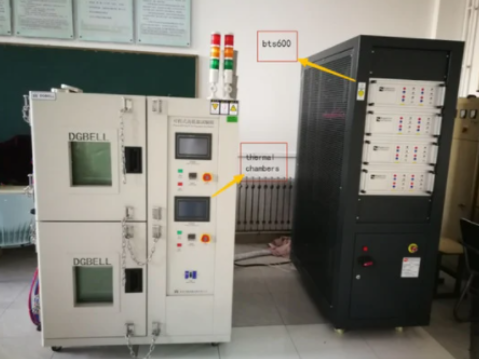Your location:Home >Automotive News >
Time:2022-06-01 12:38:52Source:
Gasgoo News, May 31, The Hong Kong Polytechnic University (PolyU) announced a recent scientific breakthrough with scientists from Yonsei University in South Korea. In the future, driverless vehicles and industrial cameras will be equipped with human-like vision.
"The new sensor can greatly enhance machine vision systems, enabling better performance in various image analysis and recognition tasks," said research leader Dr Chai Yang, Associate Professor of PolyU's Department of Applied Physics and Assistant Dean of the School of Applied Science and Textiles.
Machine vision systems typically consist of multiple cameras and computing units that capture and process images for tasks such as facial recognition.Such systems require sophisticated circuitry and complex algorithms to "see" objects under various lighting conditions.However, few comparable systems are powerful enough to process large amounts of visual information in real time, making it difficult to compare with the human brain.
The new bioinspired sensor developed by Dr. Chai's team may provide a sol tion to the above problems: the sensor can directly adapt to light and dark, reducing the dependence on background computing.The new sensor mimics the human eye's ability to adapt to different levels of brightness, just as the naked eye can accurately identify objects in extremely dim to extremely bright lighting conditions.
"The human pupil helps regulate the amount of light entering the eye, and retinal cells are primarily responsible for adapting to brightness," explains Dr. Chai. The natural light intensity range is as wide as 280 decibels, compared to 70 for conventional silicon-based sensors. decibel.The effective range of the new sensor developed by Dr. Chai's team is as high as 199 decibels, which is impressive.In contrast, the human retina can adapt to environments with bright to low light levels, in the range of about 160 decibels.
In order to achieve the above performance, the research team first used a semiconductor molybdenum disulfide with unique electrical and optical properties to make a double-layer ultra-thin film with a thickness of almost atoms, and then developed a phototransistor for detecting light; The introduction of "charge trap states" into the thin film controls the ability to detect light.
The "charge trap states" used in phototransistors are actually impurities or defects in the solid crystal structure that limit charge movement."These trap states allow optical information to be stored and dynamically adjust the optoelectronic properties of the device down to each pixel," the researchers said. By controlling the movement of electrons, the trap states can precisely tune the amount of electricity the phototransistor conducts, thereby controlling the device's electrical properties. Photosensitivity, which is its ability to detect light.
Every bionic vision sensor consists of an array of such phototransistors.They mimic the rods and cones in the human eye, which are responsible for detecting dim and bright light, respectively.Therefore, the sensor can detect different objects in various lighting environments, and can also convert and adapt to different brightness, and the range is wider than the human eye.
"The new sensor reduces hardware complexity and greatly improves image contrast under different light and dark conditions, thereby providing efficient image recognition," said Dr. Chai.
This new bionic vision sensor will enable a new generation of artificial vision systems, not only for autonomous vehicles and manufacturing applications, but also to find other exciting new applications in edge computing and the Internet of Things.
Statement: the article only represents the views of the original author and does not represent the position of this website; If there is infringement or violation, you can directly feed back to this website, and we will modify or delete it.
Picture and textrecommendation

2022-06-01 12:38:28





2022-06-01 12:35:07
Hot spotsranking
Wonderfularticles

2022-06-01 12:34:30

2022-06-01 12:33:46
![[New Car Quick Facts] A variety of MPVs are](http://www.bdiy.net/uploadfile/2022/0601/20220601123341571.jpg)

2022-06-01 12:31:32

2022-06-01 12:31:07

2022-06-01 12:30:37
Popularrecommendations
